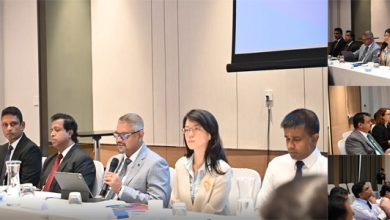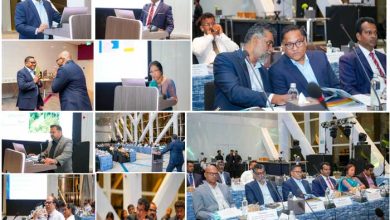Doing things the Sri Lankan way.

 By Dr Marcel de Roos, Psychologist PhD, the Netherlands
By Dr Marcel de Roos, Psychologist PhD, the Netherlands
In the fourteen years that I live in Sri Lanka I have seen certain things change. To name a few: the horrible bloody civil war came to an end, the economy revived, the infrastructure improved, the Colombo skyline changed dramatically, the Easter bomb attacks, the Corona virus pandemic and the present economic situation.
But what stayed the same is the mindset of many Sri Lankans. There seems to be a hierarchical power culture which is paralysing the population. It starts with the education of Sri Lankan children. The predominant pattern is that at home they should obey and respect their parents and stay silent when their parents speak; there are strict rules that children should adhere to.
At school (and even at university) there is an authoritarian top-down structure where generally speaking children and students are taught to memorise and reproduce instead of thinking independently and critically. In the governmental and corporate culture there is a similar pattern. It’s quite normal to shout at employees to get things done and micro-managing is common. Grownups are not trained to take responsibility and to think for themselves.
This system can be partly traced back to the colonial history where the Dutch and the British tried to subjugate the country with a divide and rule system. It was installed to create suppression and dependency with the least possible effort. The rule of the law was maintained with hierarchy, fear and punishment.
This whole system is still ingrained in our society, in our politics, educational structure, in our personal and working life.
There are also the typical Asian gender roles which seem to be culturally defined too. Generally speaking boys are raised like “little princes” and are geared for studies or vocational jobs. Girls usually have to apply themselves to the domestic chores and while they can do their studies, marriage seems to be the primary goal. As a consequence Sri Lanka appears to be a male dominated society where many women feel second best. Men often take their marriage, their role in it and their spouse for granted.
Men and women are “wired” in a different way and the causes stem from nature and nurture. It is not surprising then that they often have trouble in understanding each other. In Sri Lanka this is enhanced because of the schooling system where most of the children attend boys or girls schools, so there is little opportunity to get familiar with the opposite sex in a natural way.
Things are slowly changing within segments of the younger generation but there is still a long way to go. Cultural changes take their time and it’s dependent on many factors. But in history there have been leaders (like Martin Luther King, Nelson Mandela) or movements like the anti-smoking campaign which in a relatively short time made a huge impact. We need more of these brave, creative, independent and charismatic people.
Sri Lanka is the second wealthiest nation (after the Maldives) in South Asia and is a lower middle income nation. More emphasis on modernising the schooling and educational system can contribute immensely to its economy and the wellbeing of its population.






